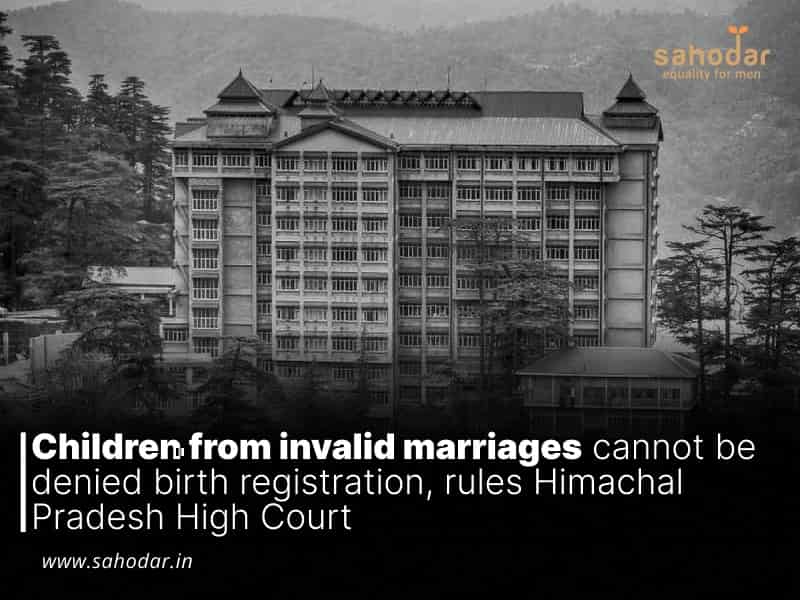Justice Jyotsna Rewal Dua observed that such children are living beings and the same needs to be acknowledged in law.
The Himachal Pradesh High Court recently stated that children should not be denied birth registration simply because they were born from an unregistered or legally invalid marriage.
Justice Jyotsna Rewal Dua emphasized that the birth of children arising from a relationship lacking legal recognition must be evaluated independently of that relationship.
“The relationship between the parents may not be sanctioned by law but the birth of a child in such relationship has to be viewed independently of the relationship of the parents. A child born in such relationship is innocent and is entitled to all the rights which are given to other children born in valid marriage. This is the crux of the amendment in Section16(3) of the Hindu Marriage Act,” the Court said in its October 17 order.
The Court further stated that these children are living individuals, and this reality must be recognized in the law.
The Court was addressing a petition submitted by a woman on behalf of her three minor children. The woman’s counsel informed the Court that the parents’ marriage took place in 2011, and they had been living together as husband and wife since that time.
Importantly, this marriage could not be registered because the husband was still legally married to his first wife, who was in poor health and had granted him permission to remarry.
In other words, the union was not considered legally valid because it violated Section 4(a) of the Special Marriage Act, 1954, which states that a person cannot enter into a marriage while having another living spouse.
As the marriage was deemed invalid and unregistered, state authorities refused to register the births of the children from this union in the Panchayat records, specifically in the Birth Register and the Pariwar (family) Register.
However, the Court disagreed with the decision made by the Panchayat authorities, asserting that children from even invalid unions should not be denied legal recognition.
The Bench pointed out that Section 16(3) of the Hindu Marriage Act recognizes that even if a marriage is null and void, any child born from that marriage is still considered legitimate.
The Court also noted that neither the Special Marriage Act nor the Himachal Pradesh Panchayati Raj General Rules prohibit the registration of children born from an unregistered marriage in the birth or family records.
Additionally, the Court highlighted that the husband’s first wife clearly stated she had no objection to registering her husband’s children’s names in the birth or family records.
In light of this, the Court determined that the children’s names in this case should be included in the Panchayat records.
“The objection of the respondents that since the marriage between the parents of the petitioners cannot be registered in view of provisions of Section 4(a) of the Special Marriage Act and on that count names of the petitioners cannot be entered in the Panchayat Record is clearly misconceived and violates the import of Section 16(1) of the Hindu Marriage Act,” the Court said.
The Court then approved the request and instructed the State authorities to add the children’s names to the Panchayat records quickly.

